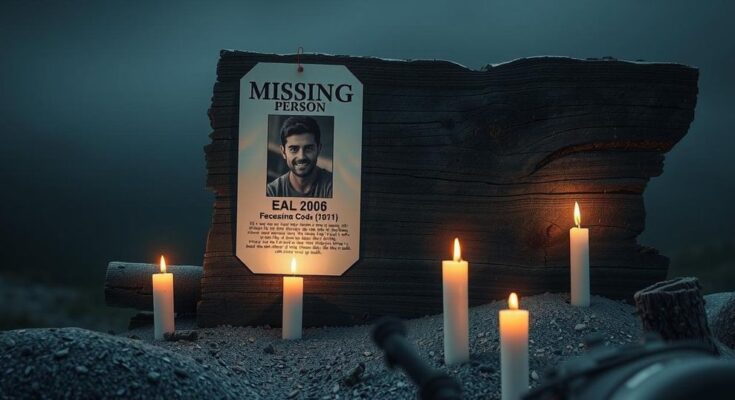A decade after Itai Dzamara’s disappearance, there are increasing calls for accountability from the Zimbabwe government. Activists are pressing for a transparent investigation, while prominent figures criticize the Zanu PF government, asserting it holds knowledge of Dzamara’s fate. Legal challenges regarding the ratification of international human rights treaties further underline the ongoing human rights crisis in Zimbabwe.
A decade after the disappearance of human rights activist Itai Dzamara, demands for accountability from the Zanu PF government in Zimbabwe have intensified. Campaigners have condemned the ruling party, emphasizing the need for a transparent investigation into the circumstances surrounding Dzamara’s abduction on March 9, 2015, by alleged State security operatives.
Arnold Tsunga, an esteemed human rights lawyer, has urged President Emmerson Mnangagwa’s government to publicly address its failure to bring those responsible for Dzamara’s disappearance to justice. Tsunga highlighted the negative impact of this neglect on both human rights advocates and the affected families, emphasizing the uncertainty and trauma they endure without closure.
Former MP Job Sikhala asserted that the government possesses knowledge regarding Dzamara’s fate and is obligated to provide clarity to the public. He underscored that a state must guarantee its citizens’ security, maintaining that the demand for accountability remains a pressing matter of public interest.
Obert Masaraure, president of the Amalgamated Rural Teachers Union of Zimbabwe (ARTUZ), characterized Zanu PF as a terrorist organization, claiming that its leaders would eventually face consequences for their actions concerning Dzamara’s case. He expressed persistent determination to seek justice for Dzamara’s abduction.
Despite efforts to secure comments from government officials, including Information Minister Jenfan Muswere, responses were not forthcoming. However, Zanu PF’s Director of Communication, Farai Marapira, contended that the responsibility lies with human rights activists to substantiate their claims against the party, which he deemed law-abiding.
Significantly, Zimbabwe has yet to sign or ratify the United Nations International Convention for the Protection of All Persons from Enforced Disappearance, despite ongoing calls from UN Member States for adherence. Human rights lawyer Obey Shava has legally challenged the government to ratify this treaty, citing a troubling pattern of enforced disappearances and other severe human rights abuses occurring within the country.
In conclusion, the case of Itai Dzamara remains a pivotal issue in Zimbabwe, highlighting the ongoing struggles for justice and human rights within the nation. Calls for government accountability are growing stronger, with activists emphasizing the necessity of transparency and adherence to international human rights conventions. The continued silence of the Zanu PF government raises concerns about the safety and rights of its citizens, as well as the integrity of its legal system.
Original Source: www.newzimbabwe.com




